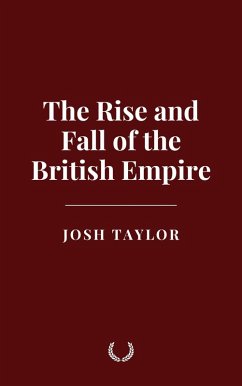The narrative analyzes pivotal historical moments such as the East India Company's dominance in India, the Atlantic slave trade, the Scramble for Africa, and the significance of the Suez Crisis. It highlights the role of key figuresincluding Queen Victoria, Mohandas Gandhi, Winston Churchill, Jomo Kenyatta, and Nelson Mandelaand examines primary documents, such as parliamentary debates, political manifestos, and firsthand testimonies, to reconstruct the ideological frameworks that justified imperial expansion and resistance.
Central to this study is an exploration of the contradictions of empire: while British rule introduced modern institutions such as parliamentary governance, education systems, and legal frameworks, it also perpetuated economic exploitation, racial hierarchies, and violent repression. The analysis underscores the complexity of decolonization processes, from India's partition and the Mau Mau Rebellion in Kenya to the independence movements in the Caribbean and Southeast Asia. The legacies of empire, including territorial disputes, economic dependencies, and cultural hybridities, are interrogated in light of contemporary debates about reparations, historical accountability, and post-colonial national identities.
The work concludes by reflecting on the enduring influence of the British Empire, noting its lasting imprint on political institutions, international relations, migration patterns, and global cultural exchanges. It posits that while the British Empire's formal dissolution marked the end of a geopolitical era, its legacies continue to shape the modern world, necessitating an ongoing reckoning with the historical realities of imperialism.
Dieser Download kann aus rechtlichen Gründen nur mit Rechnungsadresse in A, B, CY, CZ, D, DK, EW, E, FIN, F, GR, H, IRL, I, LT, L, LR, M, NL, PL, P, R, S, SLO, SK ausgeliefert werden.









